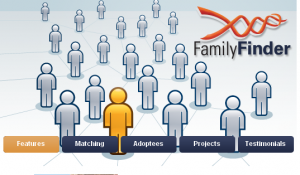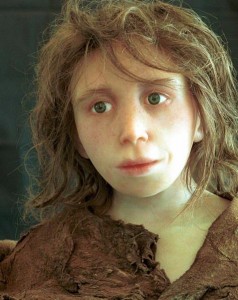Last week I wrote about the results of my Family Finder autosomal DNA test by Family Tree DNA (see “A Review of Family Tree DNA’s Family Finder – Part I“). The Family Finder test uses a whole-genome SNP scan to find stretches of DNA shared by two individuals, thus identifying your genetic cousins (and will soon include the Population Finder analysis of admixture percentages). I currently have over 33 genetic cousins in Family Finder, and I’m working with them to identify our common ancestor(s).
The Affymetrix microarray chip used by FTDNA includes over 500,000 pairs of SNPs located on the X chromosome and the autosomes (no Y chromosome SNPs). Via SNPedia:
FamilyTreeDNA uses an Affymetrix Axiom CEU microarray chip with 3,269 SNPs removed (563,800 SNPs reported) for autosomal and X (but not Y or mitochondrial) ancestry testing for $289. Other sources have cited 548011 snps. This platform tests 1871 of the 12442 snps in SNPedia.





